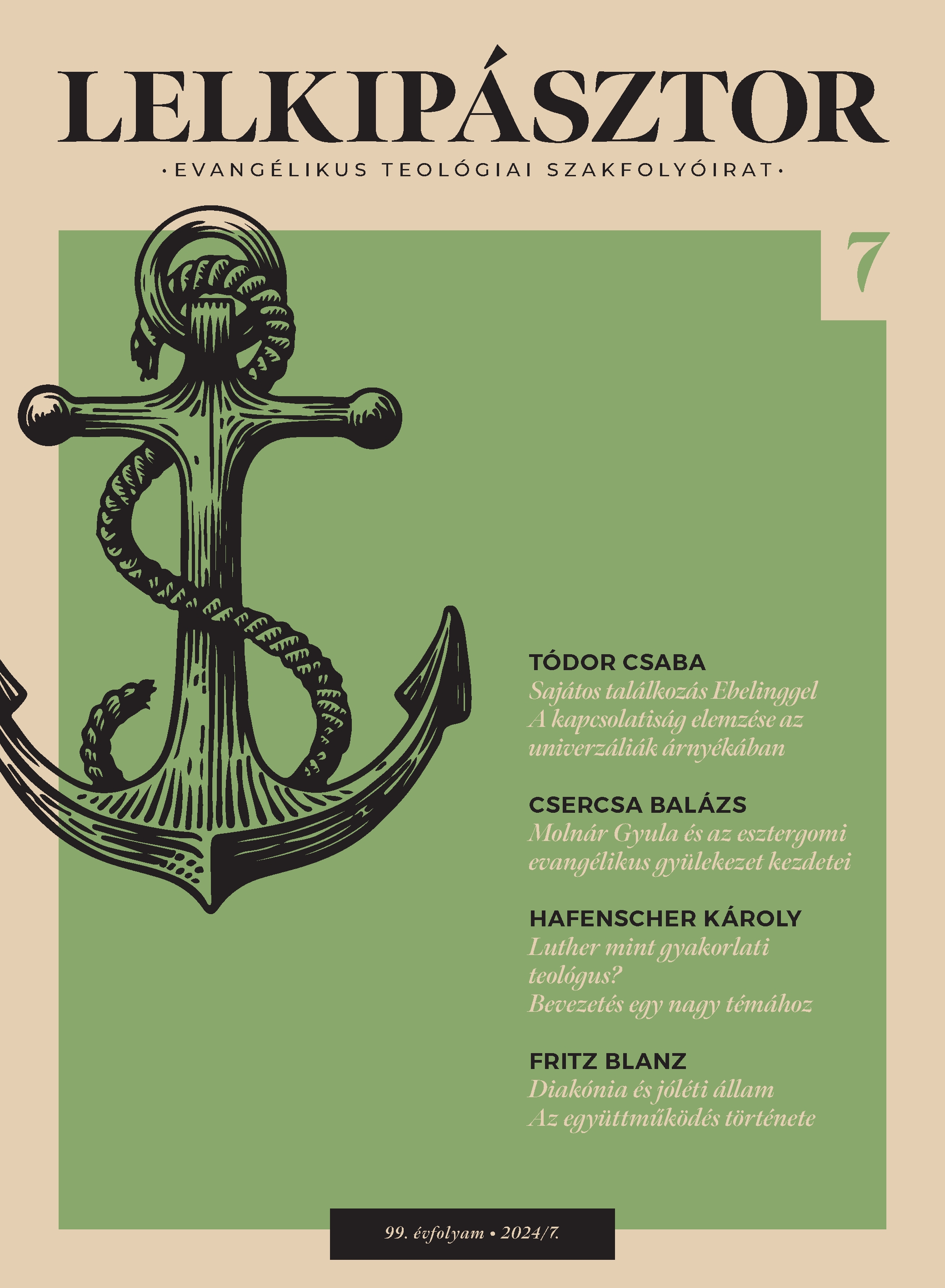Diaconia and the Welfare State: History of a Collaboration
Abstract
This presentation traces the roots of diaconal work in Germany and illustrates how the welfare state emerged through the collaboration between the state and the church. The diaconal work of the church is an expression of the profound faith that sought to address extreme challenges in difficult historical times. In this way, diaconia offers the church an opportunity for self-expression. On the other hand, the state also needs the work of diaconia to provide professional and committed assistance to the masses in various aspects of their lives. In the welfare state, the church offers an opportunity to experience the presence of God – in responsibility, trust, and reconciliation.
References
Blanz, Fritz 2022. Miteinander als Chance. Neukirchener Verlag, Neukirchen-Vluyn.
Bonhoeffer, Dietrich 1999. Börtönlevelek. Ford. Boros Attila. Harmat Kiadó, Budapest.
Finger, Evelyn 2021. „Die Kirche tut jeden Tag Gutes, es ist nur nicht in den Schlagzeilen”. Interview mit Heinrich Bedford-Strohm. Zeit Online, október 31. https://www.zeit.de/2021/44/heinrich-bedford-strohm-evangelische-kirche-vorsitz-bischof. (Megtekintés: 2024. május 27.)
Huber, Wolfgang 2001. Die Rolle der Kirchen als intermediärer Institutionen in der Gesellschaft. In: Klaus D. Hildemann (szerk.): Die Zukunft des Sozialen. Solidarität im Wettbewerb. Evangelische Verlagsanstalt, Leipzig. 45–54. o.
XIII. Leó 1991. Rerum Novarum. XIII. Leó pápa apostoli körlevele a munkások helyzetéről [1891]. Ford. Dér Katalin. KDNP, Budapest. Web: https://regi.katolikus.hu/konyvtar.php?h=125. (Megtekintés: 2024. május 27.)

This work is licensed under a Creative Commons Attribution-NonCommercial-NoDerivatives 4.0 International License.




